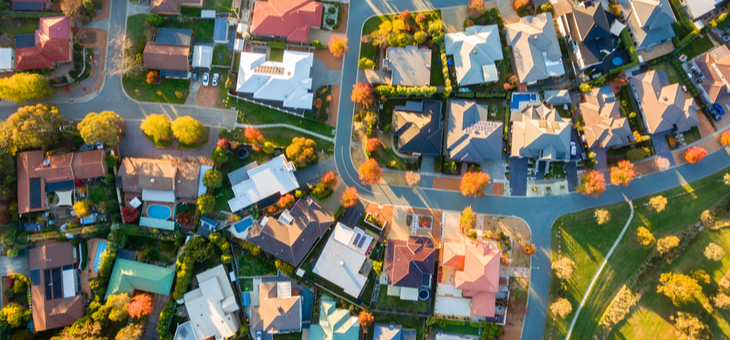Older Australians have joined the housing boom, preferring to build or renovate rather to seek out retirement accommodation.
And they are a much more powerful force than first home buyers.
Peter Koulizos, program director, school of architecture and built environment at the University of Adelaide, told the AFR that many older home builders had equity that gave them spending power.
“Luckily, the people who are in that age bracket have done pretty well as the housing market has been very strong, so it makes sense to build or renovate than to move into aged care,” he said.
Demographer Mark McCrindle says Australians aged 55-plus are a force in property because they are a quarter of the population but own more than half of the nation’s private wealth.
They have a much bigger ‘footprint’ in the market than first home buyers.
“As they move to the empty-nester life stage, far from downsizing, many are upgrading with renovations to make their place even more their forever home.”
AFR quoted builders in three states reporting more building by older Australians.
Janelle Goulding, general manager of Sydney-based builder Thrive Homes, said she’d seen a “20 to 30 per cent increase in the number of people who are in their 50s and older wanting to build their own homes, rather than downsizing to an apartment”.
Wayne Whyte, director of Queensland-based Constructive Homes, said: “These people have the money to spend and are not worried about the economics or resale value of their homes.”
A Global Centre for Modern Ageing study found that eight in 10 seniors want to stay in their current home for as long as possible.
The Building Better Homes alliance agrees, saying: “Over 80 per cent of older Australians aged over 55 want to live in their own home as they age.”
In February 2020, 7.30 reported that older Australians who own their home were more than 20 times better off than those who rent.
In 2017-18, the ABS found that Australian households with at least one occupant over the age of 65 had a median net worth of $960,000.
For renters that figure was $40,800.
Read more: Renting out a house to pay for aged care
ANZ economist Felicity Emmett said Australians not in the property market would find it “more difficult over time”.
“I think we will see a situation where wealth inequality and particularly intergenerational inequality rises.”
Economist Brendan Coates said if fewer Australians own their home “it will have enormous consequences for all aspects of Australian life”.
For the less well heeled, advocates say the housing situation is dire unless there are changes in government policy.
Hal Pawson, a housing professor at the University of NSW, told ABC News that Australia needs a national housing strategy, something it hasn’t had since the Second World War.
“We don’t necessarily need to spend more money on housing as a country, we need to spend more smartly,” Prof. Pawson said.
“We have to measure the problem and commit to a strategy which addresses what we find.”
Swinburne University professor of housing policy Wendy Stone said boundaries needed to be set around people using housing as a means of wealth generation.
“How can we retain existing housing stock in regional areas for housing and home, rather than so much of it being held as vacant investment or being used as tourism investments?” Prof. Stone said.
“We need some urgency to establishing some parameters to reduce spiralling inequality.”
Read more: Tips for buying an investment property
Economist Cameron Murray says neither side of politics wants to decrease housing prices when so many Australians use property as an investment.
“The political reality is that we want higher and rising house prices; it’s a political winner and doing something to stop that is political suicide,” he said.
“Australian housing is worth about $7 trillion and a policy that effectively reduced the price of housing, even 20 per cent, would wipe off $1.5 trillion of value from those 70 per cent of households who own their own home.”
“The problem is if your parent never bought a house … you’re entrenched into intergenerational inequality by housing because there are no opportunities for you (to buy a house) independently of (parents).”
Mr Murray suggests Australia look to Singapore, where a “public, subsidised doorway to get into the market” is available to 80 per cent of the population.
Prof. Stone said an unbalanced market affects the entire community, not just housing crisis “losers”.
“We know that an unequal society with a high degree of economic polarisation is going to undermine our economy in the longer term.”
Does housing policy lead to inequality? Do you support a rethink of housing policy?
Read more: Boom to increase inequality
If you enjoy our content, don’t keep it to yourself. Share our free eNews with your friends and encourage them to sign up.

